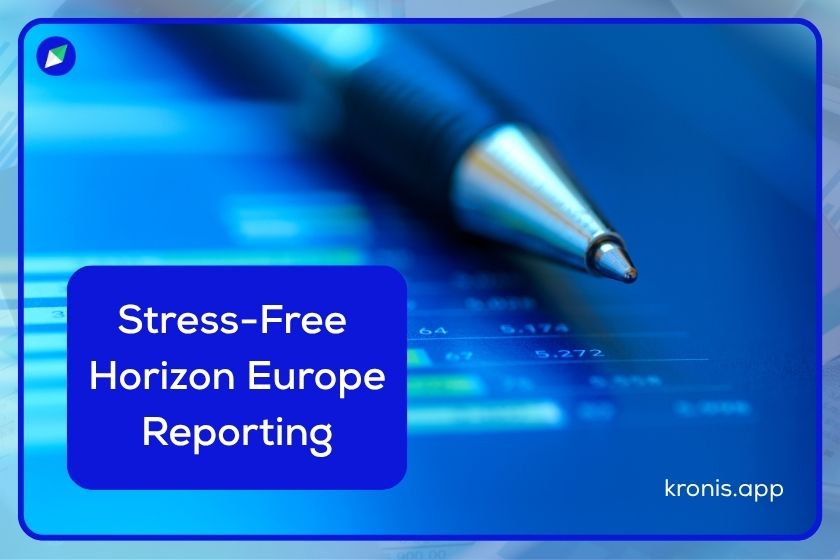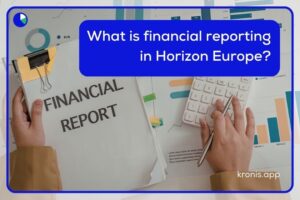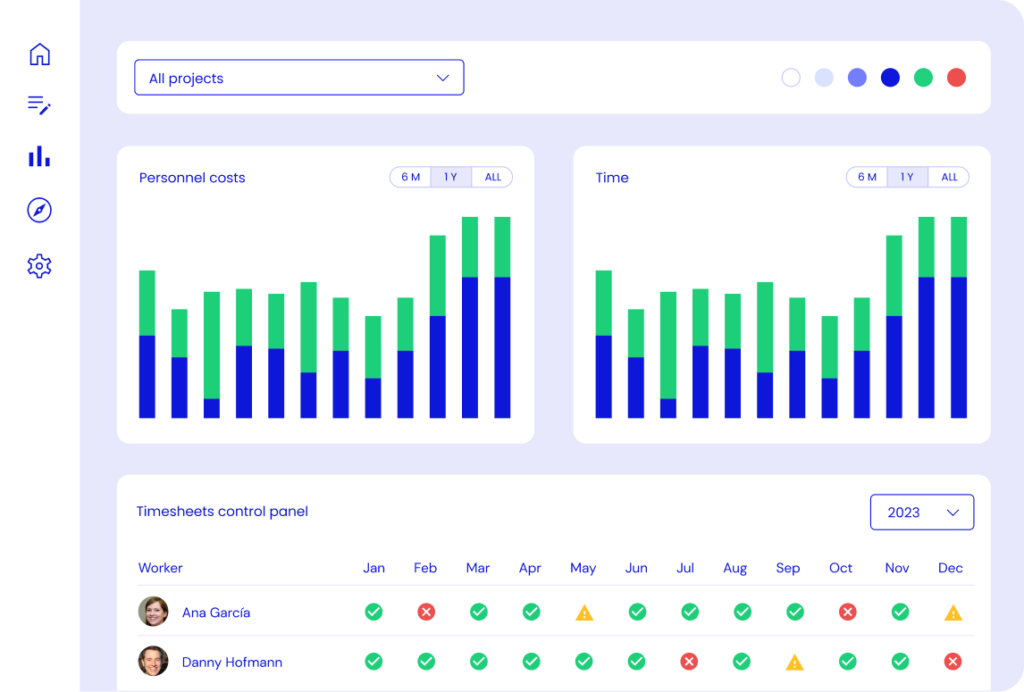Discover what Article 21 of the Grant Agreement really requires for your Horizon Europe project. Learn which reports to submit, when to submit them, and how to stay fully compliant—without stress or confusion.

Introduction
Getting EU funding is a big deal and a huge step for any team. But once the excitement settles, the reality kicks in: the paperwork. Reporting isn’t just a box to tick—it’s how you prove to the European Commission that you’re really doing what you promised and spending the money correctly.
If it’s your first Horizon Europe project, the idea of preparing official reports can feel pretty overwhelming. The truth? It’s completely normal to feel lost at the beginning. The good news is, with the right approach and a few simple habits, anyone can manage project reporting—even without any previous experience.
What Does Article 21 of the Grant Agreement Require? (Explained Simply)
Article 21 can sound intimidating—but it’s really just about keeping things clear, transparent, and fair for everyone. The EU gives you funding because they believe in your project, but they want to see, step by step, how things are going and how their money is being used.
What does this actually mean for you?
You’re expected to check in regularly with the European Commission through “reports.” Think of it like sharing progress updates at work, but with a few extra details and a standard format.
Remember, EU projects are funded with public money. That means the Commission must show how every euro is spent, not just for your project, but for all Horizon Europe projects across Europe. Reporting helps keep everything transparent. It also means you get paid on time, your project stays on track, and you build trust with funders—making it easier for your organisation to join future EU projects.
What Are You Actually Reporting?
Technical progress:
- Did you do what you said you would do in your work plan?
- Have you achieved any big results, delivered any “deliverables” or hit any milestones?
- Are you facing problems, delays, or changes? If so, just be open about them.
Financial details:
- How much have you spent so far?
- Which partner spent what amount?
- Is everything justified with supporting documents (invoices, timesheets, contracts, etc.)?
Timelines:
- You’re not expected to wait until the very end of the project.
- Article 21 splits your project into “periods” (often every 12 or 18 months), so you report regularly, not just once at the end.
What Happens If You Don’t Report (or Do It Wrong)?
- Payments can be delayed or stopped.
- You might have to return some funding if things aren’t justified properly.
- The Commission can ask for clarifications or extra information—which means more time and more paperwork for you.
What About Third Parties?
If your project includes linked third parties (other organisations involved in specific tasks), they also need to provide financial and technical information for the reports.
Each beneficiary and linked party is responsible for their own numbers and evidence.
The Good News: The format and structure for reports are always explained in the Grant Agreement, and the Commission provides templates to make things clearer. Plus, digital tools like Kronis can help you keep everything organised and make reporting much easier, even if you’re new to this world.
Bottom line:
Article 21 just means you need to keep the Commission informed—with honesty, regularity, and good evidence. If you do that, you’ll keep your funding secure and avoid last-minute reporting stress.
Types of Reports You Need to Submit
Reporting for Horizon Europe isn’t just a one-time thing—it’s a routine. Throughout your project, you’ll be asked to share updates through two main types of reports: Periodic Reports and the Final Report.
Periodic Reports
When do you submit them?
At the end of each “period” in your project—usually every 12 or 18 months. (Check the Data Sheet in your Grant Agreement for your specific dates.)
What do they include?
- Technical section:
Here, you explain what you and your partners have been working on during that period. What tasks have you finished? Did you meet your objectives? Have you completed any deliverables? If there were any delays or changes, just explain them honestly.
- Financial section: This part is about the money. You need to show all the costs that have been incurred and justified in that period, broken down by category: salaries, travel, equipment, subcontracting, materials, etc.
Important: Every beneficiary (and any linked third party) submits their own financial information for their part of the project.
Don’t forget to include all supporting documents—like invoices, timesheets, and contracts—to prove each cost.
- Declarations:
Each partner confirms that their financial information is accurate and complies with the EU rules.
Tip: Think of the periodic report as a project “health check”—showing both what’s going well and where you might need help or more time.
Final Report
When do you submit it?
At the very end of the project—after your last periodic report.
What does it include?
- Final technical report:
A summary of all your work and achievements across the whole project. Here you describe your main results, how they have made an impact, and what you have done to share, publish, or use your findings.
- Final financial report:
The last and complete overview of all spending—making sure everything adds up and every euro is justified, with supporting evidence attached.
Tip: The final report brings together everything you’ve already shared in the periodic reports, plus a big-picture view of your project’s success and lessons learned.
If you keep good records as you go and don’t leave things for the last minute, both types of reports will feel much easier and more manageable. And if you use a tool like Kronis, preparing financial reports can even become just another regular task—not something to dread!
Common Reporting Mistakes
It’s completely normal to feel a bit lost with Horizon Europe reporting, especially if you’re new to EU projects. The truth? Even experienced teams make mistakes. Here are the most common ones we see—and how you can easily avoid them:
1. Waiting Until the Last Minute
A lot of teams put off reporting until the deadline is just around the corner. That’s when panic sets in, documents go missing, and mistakes happen.
How to avoid it: Make a habit of updating your technical notes and uploading financial documents as you go. Little by little really does make a difference.
2. Missing Supporting Documents
You might have the numbers right, but if you don’t have proof—like invoices, signed timesheets, or contracts—the EU won’t accept your costs.
How to avoid it: Keep a digital folder just for supporting documents. As soon as you get an invoice or sign a contract, upload it straight away.
3. Vague or Incomplete Technical Reports
Writing “work completed” isn’t enough. The Commission wants clear details about what you did, what results you achieved, and any problems you faced.
How to avoid it: Be as specific as possible. Mention deliverables, milestones, and key results—even if not everything went perfectly. Honest reporting is always better.
4. Not Getting Financial Statements Signed Off
Each partner needs to confirm their financial statements are correct. Sometimes teams forget, and this causes delays or rejections.
How to avoid it: Set reminders and make sure approvals are signed before you submit anything.
5. Ignoring Linked Third Parties
If you have linked third parties (like subcontractors or special partners), they also need to provide financial and technical information.
How to avoid it: Check early who needs to report and get their input in advance—don’t leave it to the last week.
Remember: Most reporting problems are totally avoidable with simple routines and a bit of digital help. If you stay organised, the Commission’s reviewers will find your reports clear and easy to approve—and you’ll get your payments faster!
Final Thought
Project reporting in Horizon Europe can feel like a lot—especially if it’s your first time. But you don’t need to be an expert or a paperwork wizard to get it right. If you stay organised, keep your documents handy, and build a habit of updating your reports along the way, you’ll avoid most problems before they even start.
Reporting isn’t about being perfect. It’s about being clear, honest, and showing the Commission how your work is making a difference. And if you make a mistake? Just fix it and keep going—every project team has been there.
Kronis helps you organise, track, and submit your Horizon Europe financial project reports and supporting documents easily and on time, so you never miss a deadline or lose important information.




